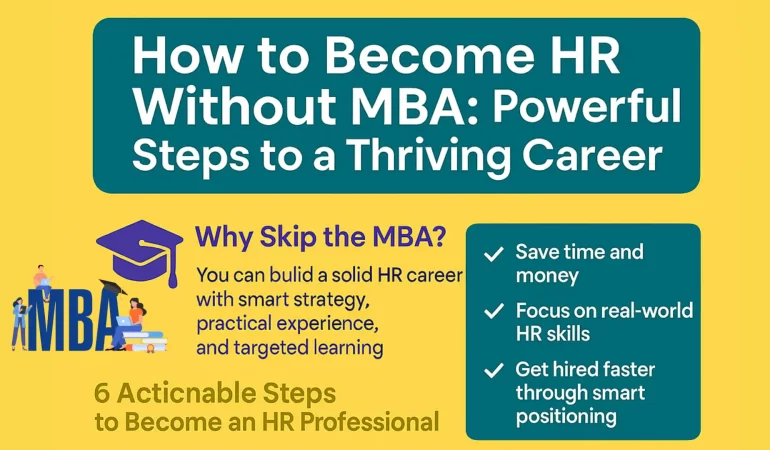Diploma in Travel and Tourism course
Diploma in Travel and Tourism course
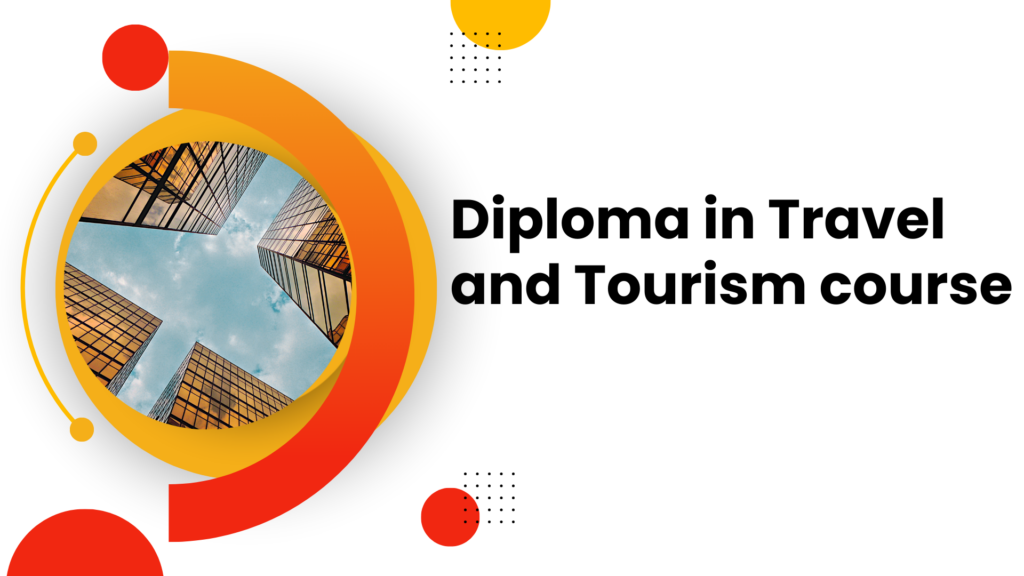
Table of Contents
Image of post regarding course
Introduction to Diploma in Travel and Tourism course
Definition: An Introduction to What a Diploma in Travel and Tourism Entails
A diploma in travel and tourism is a specialized educational program designed to equip students with the necessary skills and knowledge to work in the fast-growing global travel and tourism industry. This diploma program typically includes a combination of theoretical knowledge and practical training, helping students understand the key concepts of tourism, hospitality, travel operations, and customer service.
The course content covers various aspects, such as tourism management, travel agency operations, ticketing and reservations, destination planning, travel marketing, and cultural awareness. The curriculum is structured to give students a holistic understanding of the industry, preparing them for a diverse range of careers within travel agencies, tour operators, airlines, hotels, and other sectors of the tourism industry.
Purpose of the Course: Why Students Opt for a Diploma in Travel and Tourism
Students often choose to pursue a diploma in travel and tourism for several reasons:
- Interest in the Travel Industry: For those passionate about travel and exploring new cultures, this course provides an excellent opportunity to turn that passion into a rewarding career.
- Shorter Duration: Unlike traditional degrees, a diploma program is typically shorter, allowing students to enter the workforce more quickly while still receiving valuable industry-specific training.
- Hands-On Experience: Many diploma courses offer internships, industry visits, or practical assignments that allow students to gain real-world experience. This practical exposure helps bridge the gap between theoretical knowledge and the demands of the industry.
- Career Opportunities: With the travel and tourism industry booming globally, there is an increasing demand for qualified professionals. A diploma in travel and tourism opens up a wide range of job opportunities in roles such as travel consultant, tour operator, travel agent, event manager, and tourism marketing specialist.
- Global Job Prospects: The skills gained from the program are often transferable across countries and continents, allowing students to find opportunities both locally and internationally.
Duration and Mode of Study for a Diploma in Travel and Tourism
Below is a comprehensive overview of the typical duration and modes of study for a diploma in travel and tourism.
1. Duration of the Course
The duration of a diploma in travel and tourism program is typically shorter than a full-fledged degree, making it an attractive option for students looking to quickly enter the workforce. However, the exact duration may vary depending on the mode of study (full-time, part-time, or distance learning) and the institution offering the program.
- Full-Time Diploma Program: A full-time diploma in travel and tourism generally takes around 6 months to 1 year to complete. This is the most common duration for traditional classroom-based programs. Students engage in a comprehensive schedule of lectures, practical sessions, and fieldwork that immerses them in the world of travel and tourism.
- Part-Time Diploma Program: For students who are working or have other commitments, many institutions offer part-time diploma programs. These programs typically extend the duration to 1 year to 2 years, allowing students to complete the course at a more flexible pace. The part-time structure typically involves evening or weekend classes, making it easier for students to balance their studies with work.
- Distance Learning or Online Diploma: For those who prefer a more flexible learning environment, a diploma in travel and tourism can also be pursued through distance learning or online education. The duration for distance learning programs can vary, but they generally range from 6 months to 1.5 years. Online students have the flexibility to learn at their own pace, though they are still expected to meet deadlines and participate in assessments.
2. Mode of Study
The mode of study for a diploma in travel and tourism refers to how the course is delivered and structured. With advancements in technology and changing student needs, there are various modes of study that provide flexibility, convenience, and access to quality education in the travel and tourism field. Below are the most common modes of study available:
A. Full-Time Classroom-Based Study
In a full-time classroom-based program, students attend regular lectures, practical sessions, and engage in hands-on activities designed to provide direct experience in the travel and tourism industry. This mode of study is best suited for those who prefer a structured, traditional learning environment with direct interaction with instructors and peers.
Key Features:
- Regular attendance required.
- In-person interactions with instructors and classmates.
- Field trips, industry visits, and internships often included.
- Provides more direct access to industry networks.
B. Part-Time Study
Part-time study allows students to continue working or managing other responsibilities while pursuing their diploma in travel and tourism. In part-time programs, classes are usually held in the evenings or on weekends, making it easier for students to balance their studies with other commitments. While part-time study requires a longer time to complete, it offers the flexibility that many working individuals need.
Key Features:
- Evening or weekend classes.
- Longer duration compared to full-time courses.
- Flexibility to balance work and study.
- Ideal for those who want to gain industry experience while studying.
C. Distance Learning / Online Study
Distance learning or online study is a flexible and increasingly popular option for those pursuing a diploma in travel and tourism. This mode of study allows students to complete the course remotely, accessing course materials, videos, and lectures online. Students can also communicate with instructors and fellow learners through online platforms, making it an ideal choice for those who cannot attend traditional classes due to geographical or time constraints.
Key Features:
- Learn from anywhere with internet access.
- Flexible learning schedule.
- Digital resources, recorded lectures, and online forums.
- Suitable for self-motivated students with time management skills.
- Some courses may require in-person exams or internships, depending on the institution.
D. Blended Learning (Hybrid Study)
Blended learning combines both classroom-based instruction and online learning. Students attend some classes in person and complete the remaining coursework online. This mode of study provides the best of both worlds, combining the personal interaction and practical experience of in-person learning with the flexibility of online study. It allows students to manage their time effectively while still benefiting from face-to-face interaction and hands-on training.
Key Features:
- A mix of in-person and online learning.
- Flexibility to balance both modes of study.
- Ideal for students seeking a combination of structure and independence.
- May include face-to-face tutorials or weekend workshops for practical skills.
3. Internship and Practical Training
Regardless of the mode of study, many diploma in travel and tourism programs include practical training or internships as a crucial part of the curriculum. These opportunities provide students with real-world exposure to the travel and tourism industry, helping them apply the knowledge they have gained in the classroom to practical situations.
Key Features:
- Internships or industry placements in travel agencies, hotels, tour operators, or airlines.
- Hands-on experience in customer service, reservations, itinerary planning, etc.
- Internships are typically structured to last a few weeks to a few months, depending on the course duration and institution.
- Students gain valuable industry insights, network with professionals, and improve their employability.
4. Examinations and Assessments
For both classroom-based and online modes of study, assessments play a significant role in determining a student’s progress and final qualification. These may include:
- Written Exams: Covering theoretical aspects of the course.
- Practical Assessments: Involving case studies, project work, and real-life scenario analysis.
- Presentations: Students may be asked to present their ideas on a tourism-related topic, demonstrating their communication skills.
Eligibility and Admission Requirements for a Diploma in Travel and Tourism
When considering pursuing a diploma in travel and tourism, it is essential to understand the eligibility criteria and the admission requirements that institutions may have in place. These requirements ensure that students meet the necessary academic standards and have the qualifications needed to succeed in this specialized program. Below is a detailed overview of the typical eligibility and admission requirements for a diploma in travel and tourism.
1. Basic Eligibility Criteria
The eligibility criteria for admission to a diploma in travel and tourism can vary slightly depending on the institution offering the course. However, most institutions have the following common requirements:
- Educational Qualification:
The minimum educational requirement for enrolling in a diploma in travel and tourism is usually the completion of 10+2 (higher secondary school) education from a recognized board. This means that students must have passed their secondary education, which includes a background in subjects like English, geography, or business studies.
Some institutions may accept students with other qualifications or relevant work experience, especially in fields related to tourism or hospitality, but 10+2 is typically the basic entry-level qualification. - Minimum Marks:
While the minimum marks required for admission can vary, many institutions expect candidates to have obtained at least 50% to 60% marks in their higher secondary education. This requirement may be slightly more flexible for candidates from reserved categories (SC/ST/OBC), depending on the institution’s policy. - Age Criteria:
There is generally no strict age limit for enrolling in a diploma in travel and tourism program, but most institutions prefer students between the ages of 18 to 25 years. However, mature students who wish to pursue a career change or enhance their skills are also welcome to apply.
2. Admission Process
The admission process for a diploma in travel and tourism typically involves a few simple steps, which may include the following:
- Application Form:
Candidates are required to fill out an application form, which can often be found on the institution’s official website. The application may be submitted online or in person, depending on the institution’s process. - Submission of Documents:
Along with the application form, candidates must submit essential documents such as:- Mark sheets of the 10th and 12th standard (or equivalent qualifications).
- Proof of age (usually a birth certificate or government-issued ID).
- Photographs (passport-sized).
- Identity proof (Aadhaar card, passport, etc.).
- Entrance Exam (Optional):
While many institutions offer direct admission based on academic performance, some may conduct an entrance exam to assess candidates’ aptitude in areas related to tourism, general knowledge, reasoning, and English language skills. Entrance exams may also test communication and interpersonal skills, which are crucial in the travel and tourism industry.
If an entrance exam is required, students will be notified of the exam dates and other details during the application process. - Personal Interview (Optional):
Some institutions may conduct a personal interview as part of the admission process. The interview aims to assess the candidate’s communication skills, passion for the travel and tourism industry, and career aspirations. It also provides an opportunity for candidates to demonstrate their motivation and enthusiasm for pursuing a diploma in travel and tourism. - Merit-Based Admission:
In many cases, admission to a diploma in travel and tourism is granted on a merit-based system, considering the candidate’s marks in their 12th standard exams. Institutions may also offer reserved seats for specific categories of students, such as economically disadvantaged groups or students from specific regions.
3. Language Proficiency
As the travel and tourism industry is highly customer-centric, proficiency in the English language is often a key requirement for admission to a diploma in travel and tourism. Institutions typically expect students to have a good command of English, as it is the primary language of communication in the global tourism industry.
- English Language Requirements:
- A basic understanding of English grammar, reading, and writing is essential.
- Some institutions may require proof of English language proficiency through TOEFL or IELTS scores, especially for international students or those seeking to pursue international careers in tourism.
4. Specialized Criteria (For Advanced Courses or Specific Institutions)
In some cases, institutions offering a diploma in travel and tourism may have additional criteria for specific courses or specialized programs. For example:
- Work Experience:
Some advanced programs may consider candidates with relevant work experience in the tourism, hospitality, or customer service sectors. This is especially true for those who want to pursue a more specialized career in areas like event management or tourism marketing. - Course-Specific Criteria:
Certain programs may have subject-specific requirements, such as an interest in geography, business studies, or economics, given their relevance to the tourism sector.
5. International Students
For international students applying for a diploma in travel and tourism in countries like India, the eligibility criteria and admission process may vary slightly. Typically, international students are required to:
- Have completed equivalent secondary education in their home country.
- Submit proof of proficiency in English through standardized tests like IELTS, TOEFL, or others.
- Provide valid passports and visa documents.
- Follow the specific admission guidelines provided by the institution for international students.
6. Fee Structure
The fee structure for a diploma in travel and tourism varies depending on the institution, the mode of study (full-time, part-time, or online), and the duration of the program. Generally, the fees for a diploma in travel and tourism are relatively affordable compared to degree programs. The fees can range from ₹30,000 to ₹1,00,000 (or its equivalent in other currencies) per year, with some premium institutions charging higher fees.
olffer image
Career Opportunities in Travel and Tourism
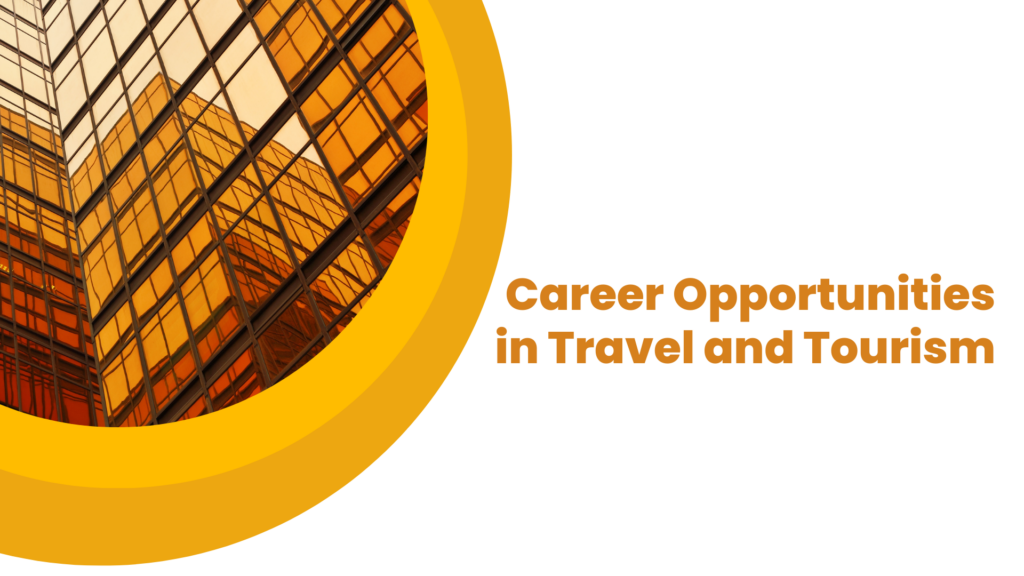
The travel and tourism industry is one of the fastest-growing sectors in the world, offering numerous career opportunities for individuals with the right qualifications and passion. A diploma in travel and tourism opens up a wide array of exciting career paths, with options spanning from customer service roles to management and specialized positions in areas like tour operations, event management, and travel marketing. Below is a comprehensive overview of the career opportunities available in the travel and tourism industry for diploma holders.
1. Travel Agent / Travel Consultant
One of the most popular career options for those with a diploma in travel and tourism is becoming a travel agent or travel consultant. These professionals help individuals and groups plan, book, and organize their travel arrangements. Travel agents provide advice on destinations, accommodations, flights, and tours, and they are integral to ensuring that customers have a smooth travel experience.
Key Responsibilities:
- Assisting clients in selecting travel destinations based on their preferences and budget.
- Booking flights, hotels, car rentals, and other travel services.
- Providing information on travel regulations, visas, and travel insurance.
- Organizing group tours and creating itineraries.
Skills Required:
- Strong communication and interpersonal skills.
- In-depth knowledge of destinations, hotels, and airlines.
- Good organizational skills and attention to detail.
2. Tour Operator
A tour operator is responsible for organizing and operating holiday packages and tours for individuals or groups. They often work with travel agents, hotels, and transport providers to create seamless travel experiences. This role is ideal for those who enjoy planning and organizing trips and have a passion for helping others experience new places.
Key Responsibilities:
- Designing, planning, and marketing tour packages.
- Coordinating travel logistics such as transport, accommodation, and activities.
- Managing group tours and ensuring everything runs smoothly during the trip.
- Collaborating with hotels, airlines, and local service providers to create customized tours.
Skills Required:
- Strong organizational and project management skills.
- Excellent knowledge of global travel destinations and local attractions.
- Ability to negotiate with service providers.
3. Tour Guide
For those with a passion for storytelling and educating others about different cultures and places, a career as a tour guide can be very rewarding. Tour guides are responsible for leading groups of tourists through landmarks, historical sites, and natural attractions while providing them with detailed information and an engaging experience.
Key Responsibilities:
- Leading groups of tourists on tours of destinations, historical sites, and cultural attractions.
- Providing informative commentary about the location, history, and culture.
- Ensuring the safety and well-being of the group during tours.
- Customizing tours based on clients’ interests.
Skills Required:
- Strong public speaking and communication skills.
- Deep knowledge of the culture, history, and geography of the destinations.
- Ability to engage and interact with diverse groups of people.
4. Hotel and Resort Management
For those interested in the accommodation aspect of travel, a career in hotel and resort management offers a wide range of opportunities. With a diploma in travel and tourism, graduates can pursue roles in managing and operating hotels, resorts, or guesthouses. This includes overseeing daily operations, managing staff, and ensuring that guests have a positive experience during their stay.
Key Responsibilities:
- Managing the day-to-day operations of a hotel or resort.
- Overseeing guest services, staff, and facilities.
- Ensuring high-quality customer service and addressing any guest complaints or concerns.
- Budgeting, marketing, and managing the financial aspects of the hotel.
Skills Required:
- Strong leadership and management skills.
- Excellent customer service abilities.
- Knowledge of hotel management software and financial management.
5. Event Planner / Manager
The event management sector within the travel and tourism industry offers dynamic career opportunities for individuals with strong organizational and planning skills. As an event planner or manager, you would be responsible for organizing corporate events, conferences, exhibitions, weddings, and other special occasions. This role often involves working with a range of vendors, such as caterers, decorators, and transportation companies, to ensure the event runs smoothly.
Key Responsibilities:
- Planning and coordinating all aspects of events, including logistics, venues, catering, and entertainment.
- Managing client relationships and understanding their event goals.
- Overseeing staff and vendors to ensure timely execution of the event.
- Handling event budgets and ensuring profitability.
Skills Required:
- Excellent organizational and multitasking skills.
- Strong communication and negotiation skills.
- Ability to work under pressure and manage large projects.
6. Airline Staff / Cabin Crew
With the growing demand for air travel, airline staff roles are in high demand. A diploma in travel and tourism can lead to careers in the airline industry, such as cabin crew, flight attendants, or ground staff. These roles involve ensuring passenger safety and comfort, providing customer service, and assisting with in-flight services.
Key Responsibilities:
- Ensuring passenger safety and security during flights.
- Providing in-flight service, including food, beverages, and entertainment.
- Assisting passengers with special needs or requests.
- Handling emergency situations calmly and professionally.
Skills Required:
- Strong communication and customer service skills.
- Ability to remain calm under pressure and during emergencies.
- Physical stamina and ability to work irregular hours.
7. Cruise Ship Jobs
A diploma in travel and tourism can also lead to career opportunities in the cruise industry. Cruise ships offer a wide range of positions, from guest services to entertainment and hospitality roles. Working on a cruise ship is a unique opportunity for individuals who enjoy traveling and working in a dynamic, multicultural environment.
Key Responsibilities:
- Providing customer service to guests on board.
- Managing activities and entertainment for passengers.
- Ensuring passenger safety and well-being.
- Coordinating shore excursions and providing information about port destinations.
Skills Required:
- Strong interpersonal skills and ability to work with diverse groups.
- Hospitality and service-oriented mindset.
- Willingness to work for extended periods away from home.
8. Travel Blogger / Content Creator
For those with a passion for writing, photography, or videography, becoming a travel blogger or content creator is an exciting career option in the travel and tourism industry. This involves traveling to various destinations, documenting experiences, and sharing them through blogs, social media platforms, or video channels.
Key Responsibilities:
- Creating engaging content about travel destinations, hotels, tours, and experiences.
- Building a social media following and engaging with the audience.
- Collaborating with tourism boards, travel agencies, and brands for sponsored content.
- Monetizing travel content through affiliate marketing, ads, or collaborations.
Skills Required:
- Strong writing and storytelling skills.
- Photography and video editing skills.
- Knowledge of social media marketing and SEO (Search Engine Optimization).
9. Travel and Tourism Marketing
Marketing professionals in the travel and tourism sector are responsible for promoting travel products and services. This includes marketing campaigns for travel agencies, airlines, hotels, tour operators, and destinations. The role involves creating targeted advertising campaigns, market research, and understanding consumer behavior to attract customers.
Key Responsibilities:
- Developing and executing marketing strategies for travel-related businesses.
- Creating promotional content and advertisements.
- Managing online and offline marketing channels, including social media, print, and digital ads.
- Collaborating with brands, agencies, and tourism boards.
Skills Required:
- Strong marketing and advertising knowledge.
- Analytical skills to assess market trends.
- Creativity and innovation in promoting travel experiences
olffer image
Benefits of Pursuing a Diploma in Travel and Tourism
A diploma in travel and tourism is a professional qualification designed to prepare individuals for successful careers in one of the world’s most dynamic and rapidly growing industries. Whether you’re passionate about travel, enjoy meeting new people, or aspire to work in an international environment, this diploma offers numerous advantages. Below is a detailed overview of the key benefits of pursuing a diploma in travel and tourism, particularly for students and job seekers looking to build a rewarding career.
1. Industry-Relevant Knowledge and Practical Training
A diploma in travel and tourism offers a blend of theoretical knowledge and practical skills specifically tailored to the needs of the global tourism sector.
Key Advantages:
- Curriculum aligned with real-world industry demands.
- Hands-on training in reservations, ticketing, and travel software like Amadeus or Galileo.
- Exposure to international travel standards and cultural practices.
2. Diverse Career Opportunities
Graduating with a diploma in travel and tourism opens doors to a wide range of job roles across multiple sectors.
Career Options Include:
- Travel consultant or agent
- Tour operator
- Event planner
- Airline ground staff or cabin crew
- Hotel and resort management
- Cruise line staff
- Tourism marketing and public relations
3. Global Career Scope
One of the standout benefits of this diploma is the potential to work not just locally, but internationally. The travel and tourism sector is global in nature.
Opportunities Abroad:
- Jobs in international travel companies, airlines, and cruise ships.
- Demand in tourism hotspots like Dubai, Singapore, the UK, and Australia.
- Pathway to work with global hotel chains and multinational tour operators.
4. Quick Entry into the Job Market
Compared to traditional degree programs, a diploma in travel and tourism typically takes less time to complete (usually 6 months to 2 years), allowing students to begin working and earning sooner.
Why It’s Beneficial:
- Fast-track to employment.
- Lower tuition fees compared to full-time degrees.
- Ideal for those seeking early financial independence.
5. Development of Transferable Skills
Students gain a wide variety of transferable skills that are useful in any industry.
Key Skills Acquired:
- Communication and customer service
- Teamwork and leadership
- Problem-solving and time management
- Marketing and sales techniques
- Cultural awareness and sensitivity
6. Professional Networking Opportunities
The course often includes internships, industry visits, seminars, and workshops that help students build relationships with professionals and employers in the travel industry.
Benefits:
- Greater access to job placements.
- Industry mentorship and guidance.
- Opportunities to attend travel expos and tourism fairs.
Top Institutes Offering a Diploma in Travel and Tourism
1. Introduction to Diploma in Travel and Tourism
- Definition: An introduction to what a diploma in travel and tourism entails.
- Purpose of the Course: Why students opt for a diploma in travel and tourism.
- Importance in Today’s World: Highlight the booming travel and tourism industry and the demand for skilled professionals.
2. Overview of Travel and Tourism Industry
- Global Travel and Tourism Market: Statistics and trends.
- India’s Travel and Tourism Industry: Key developments, growth trends, and job opportunities.
- Key Players and Stakeholders: Tour operators, travel agencies, hospitality services, government, etc.
3. Course Curriculum and Subjects
- Core Modules:
- Travel and Tourism Management
- Tour Operations
- Event Management in Tourism
- Tourism Geography
- Hospitality and Hotel Management
- Marketing and Sales for Tourism
- Travel and Tourism Management
- Elective Modules (optional based on the program):
- Sustainable Tourism
- Cruise Management
- Airline and Airport Operations
- Adventure Tourism
- Foreign Languages
- Sustainable Tourism
4. Duration and Mode of Study
- Duration of the Diploma: Typically 1 to 2 years.
- Part-Time, Full-Time, or Online: Different study modes available for flexibility.
- Internship and Practical Training: Opportunities for hands-on experience during the course.
5. Eligibility and Admission Requirements
- Basic Requirements: Age, educational qualifications (typically 12th grade or equivalent).
- Entrance Examinations (if any): Some institutes may require an entrance exam.
- Application Process: Documents, deadlines, and selection criteria.
6. Career Opportunities in Travel and Tourism
- Tourism Management Roles: Tour manager, tour operator, travel consultant.
- Hospitality Jobs: Hotel management, guest services, event coordinator.
- Airlines and Cruise Lines: Cabin crew, ground staff, customer service representative.
- Government Tourism Departments: Working with tourism boards or cultural agencies.
- Freelancing and Entrepreneurship: Opportunities for starting travel agencies or guiding tours.
7. Skills Gained During the Diploma
- Customer Service: Engaging with clients, handling bookings, and providing excellent service.
- Communication and Interpersonal Skills: Handling diverse clients and working in multicultural environments.
- Marketing and Sales Skills: Advertising travel packages, promotions, etc.
Leadership and Management Skills: Overseeing travel plans, managing logistics, and coordinating teams.



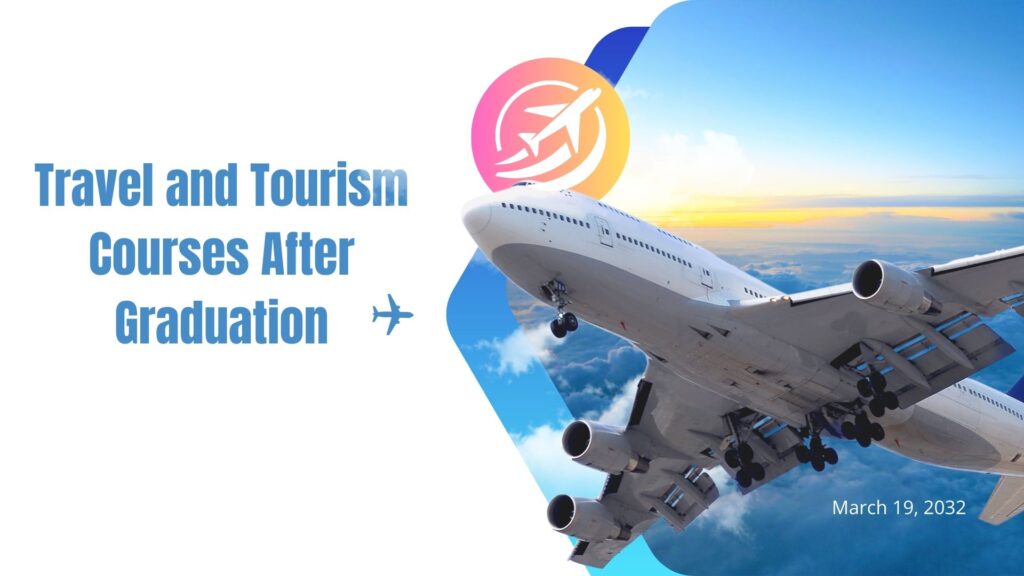
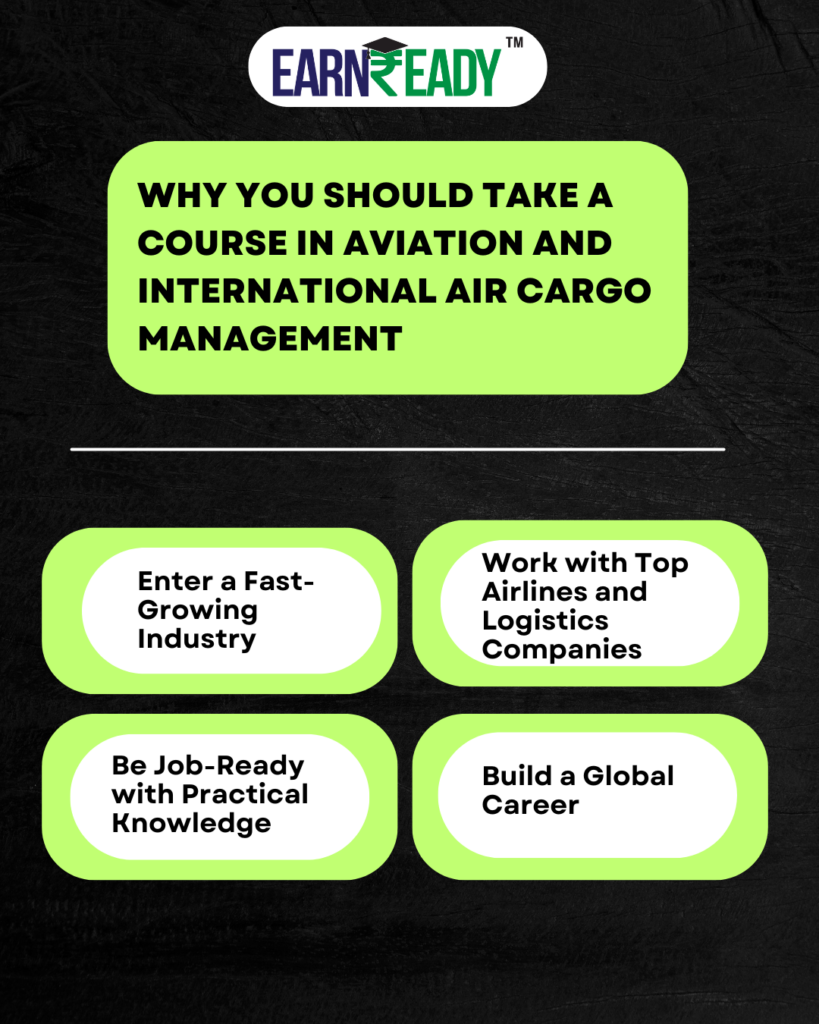
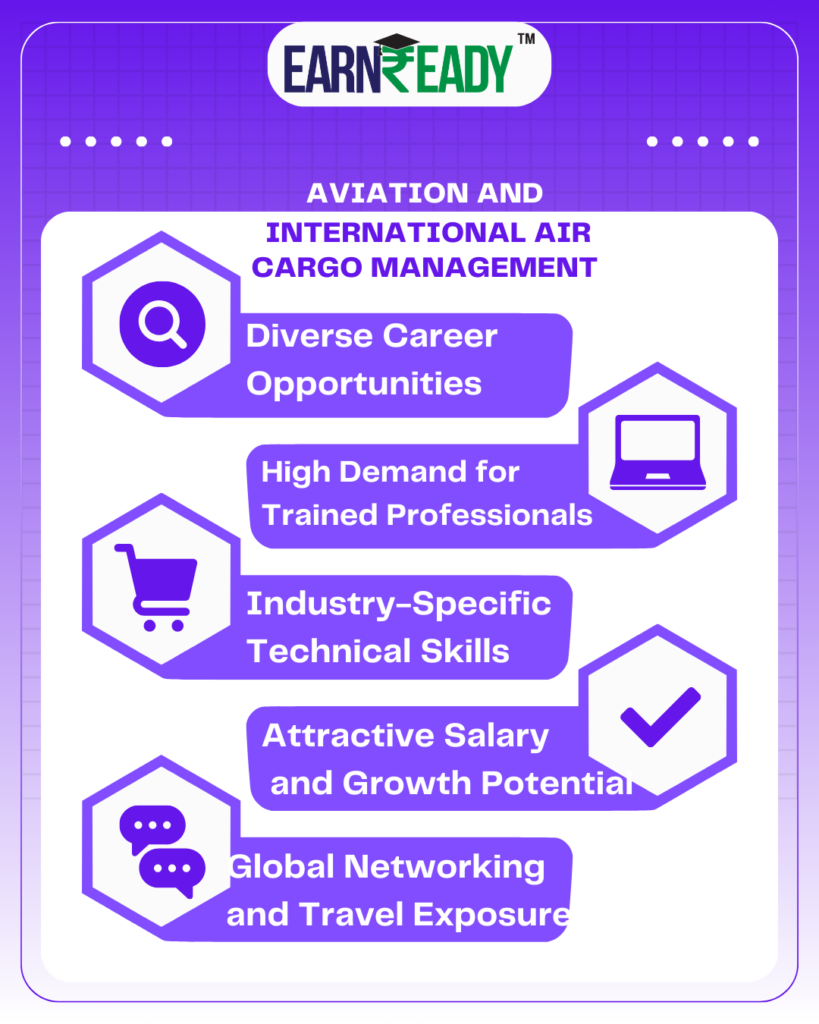
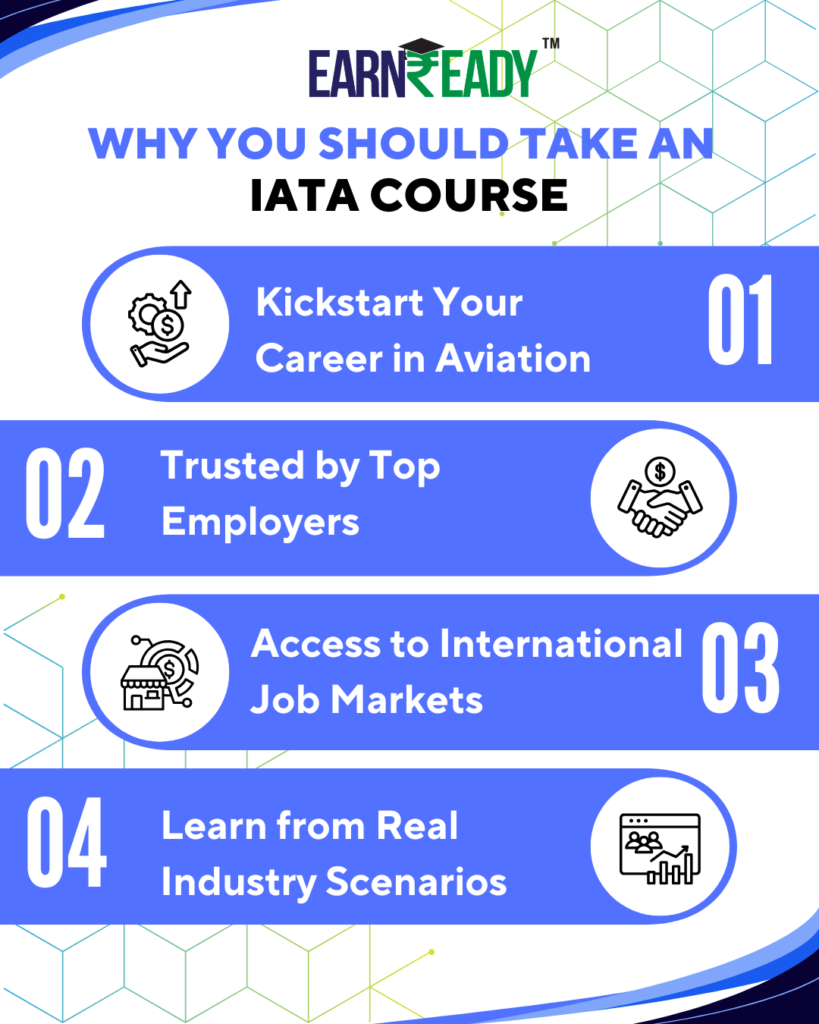
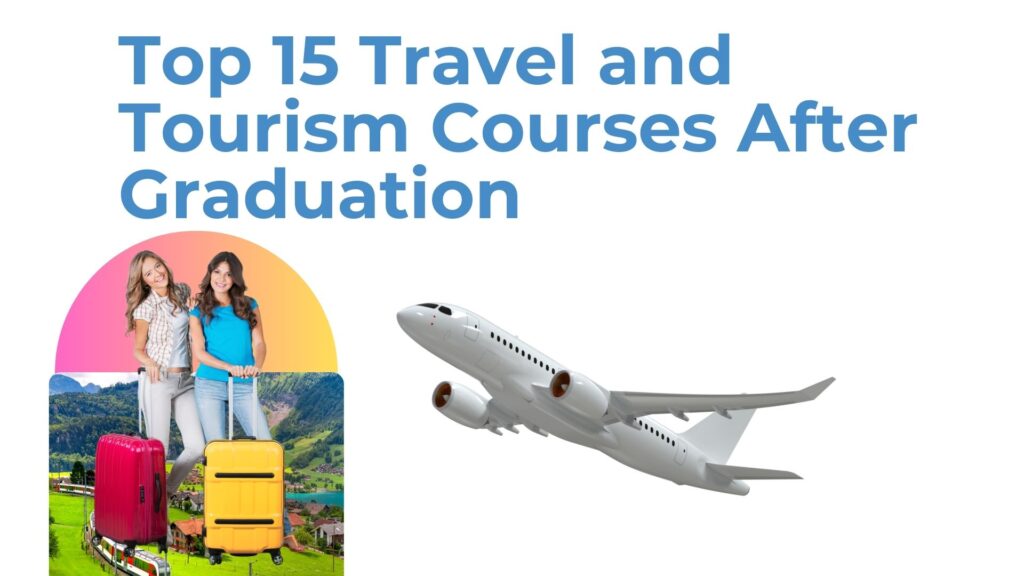
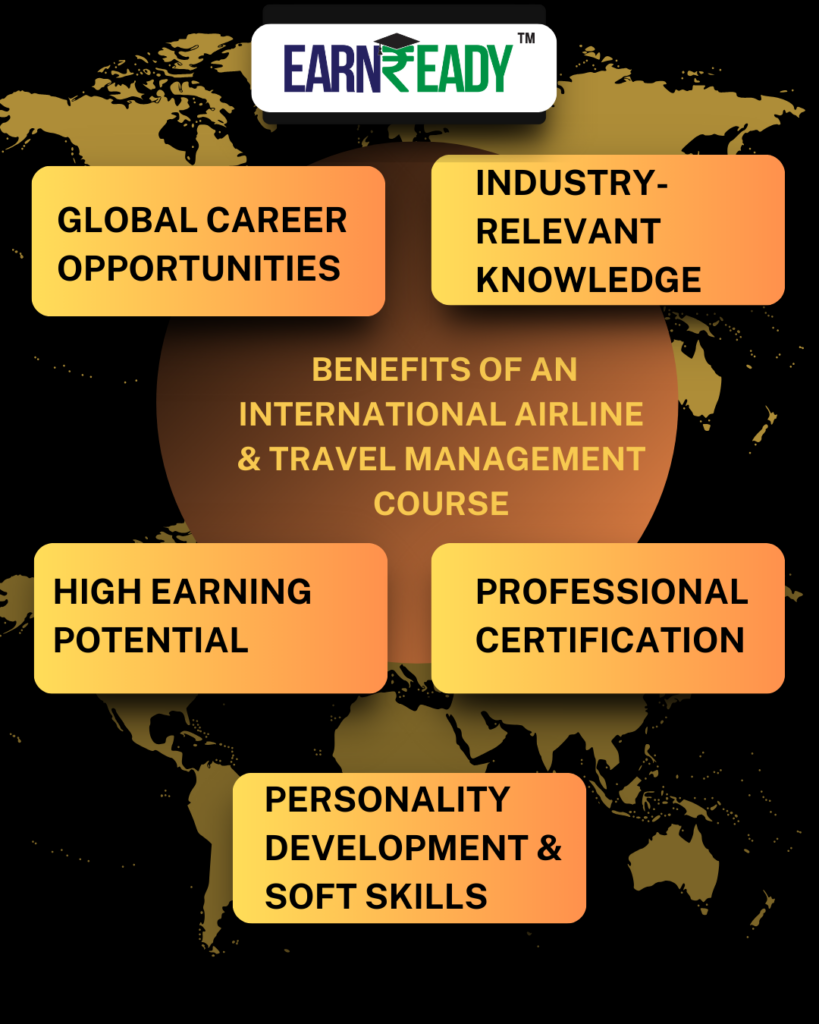
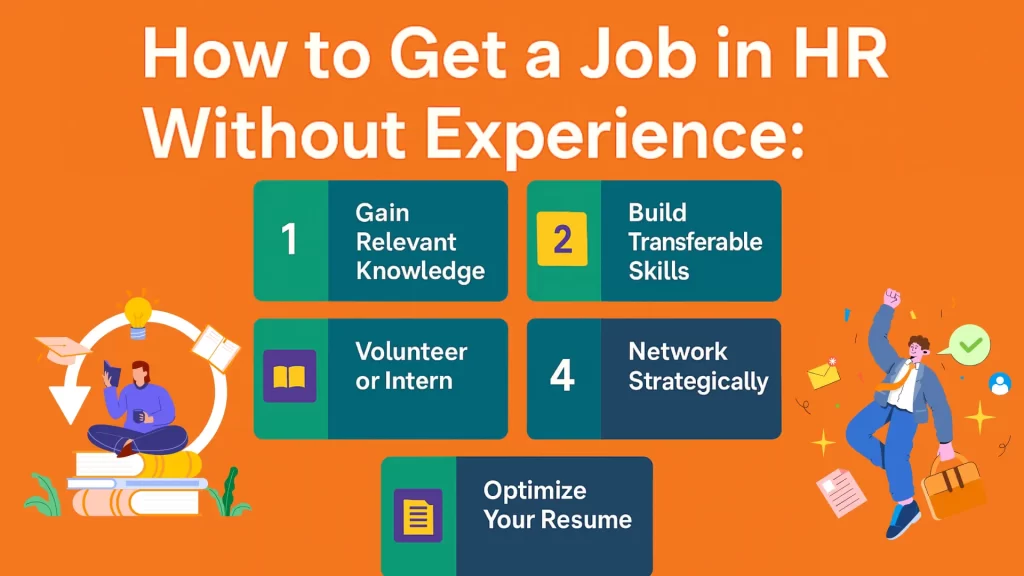

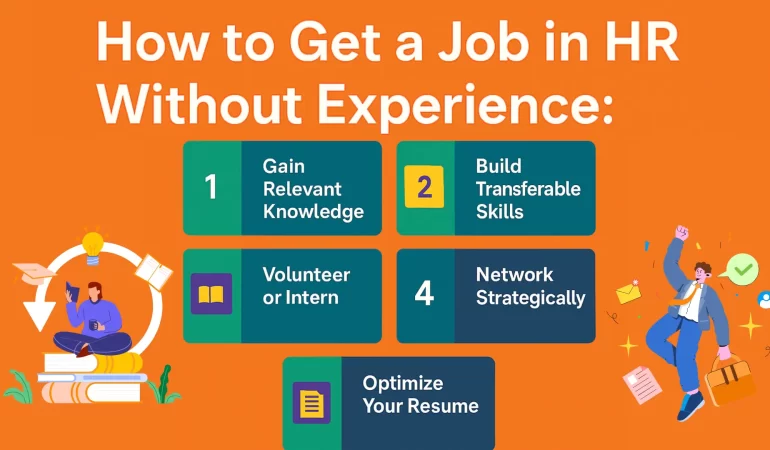

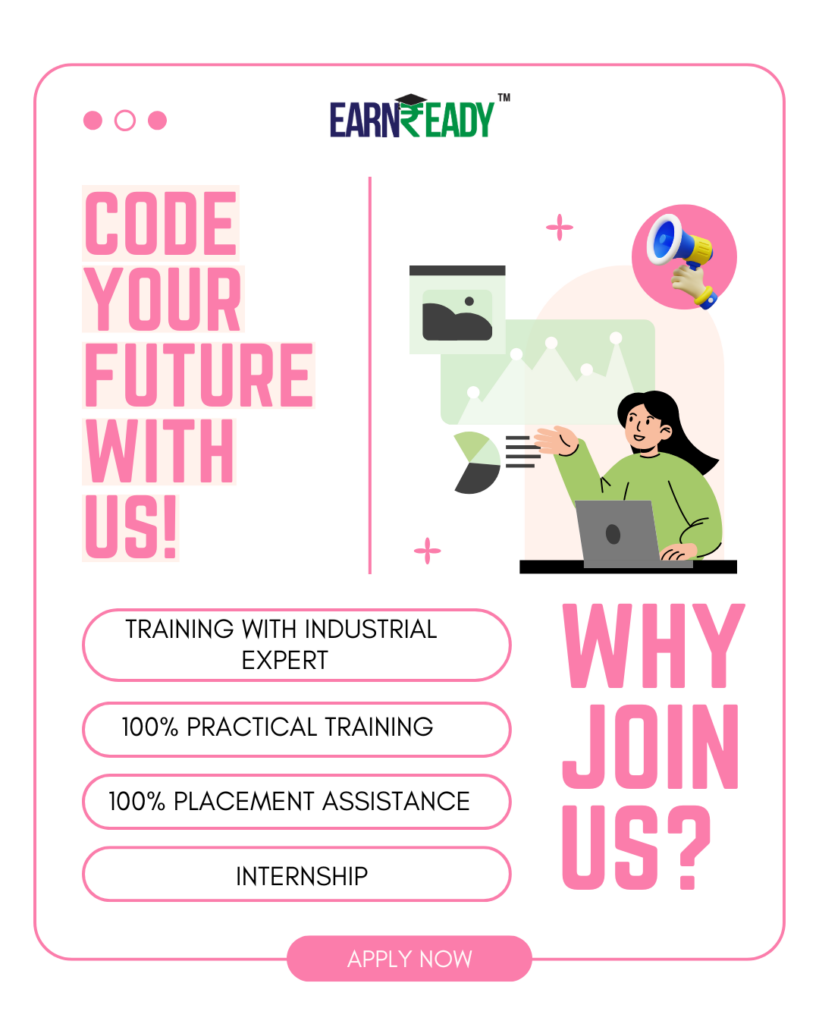
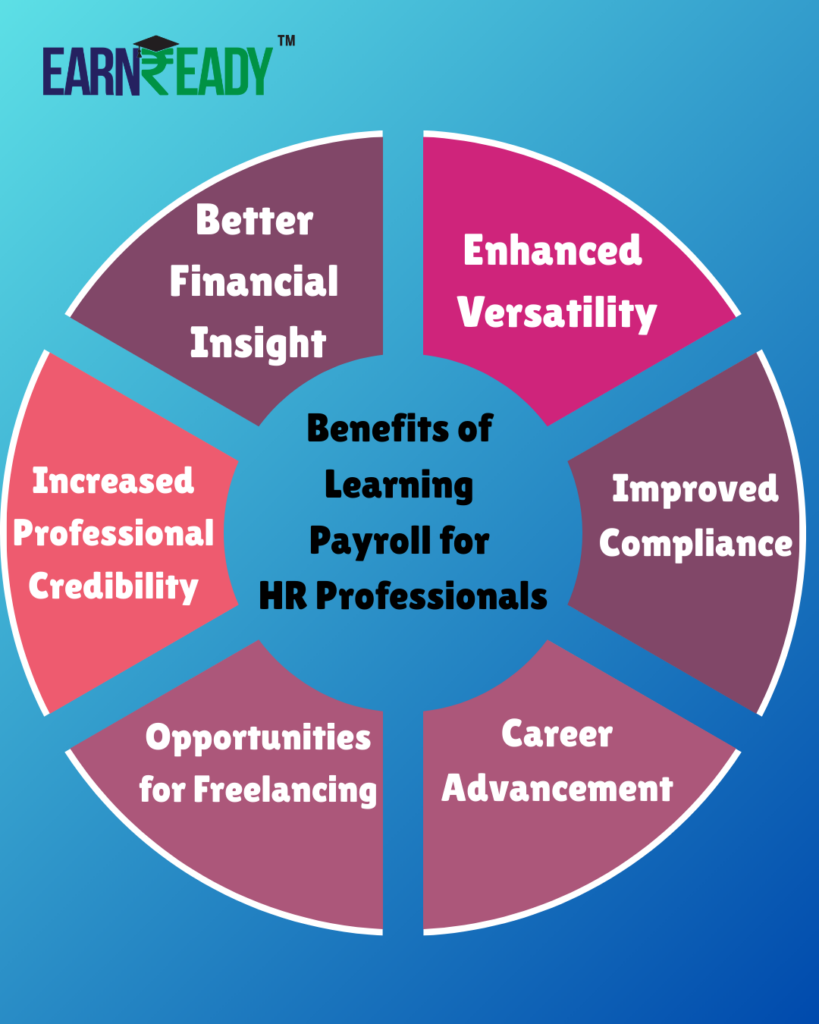
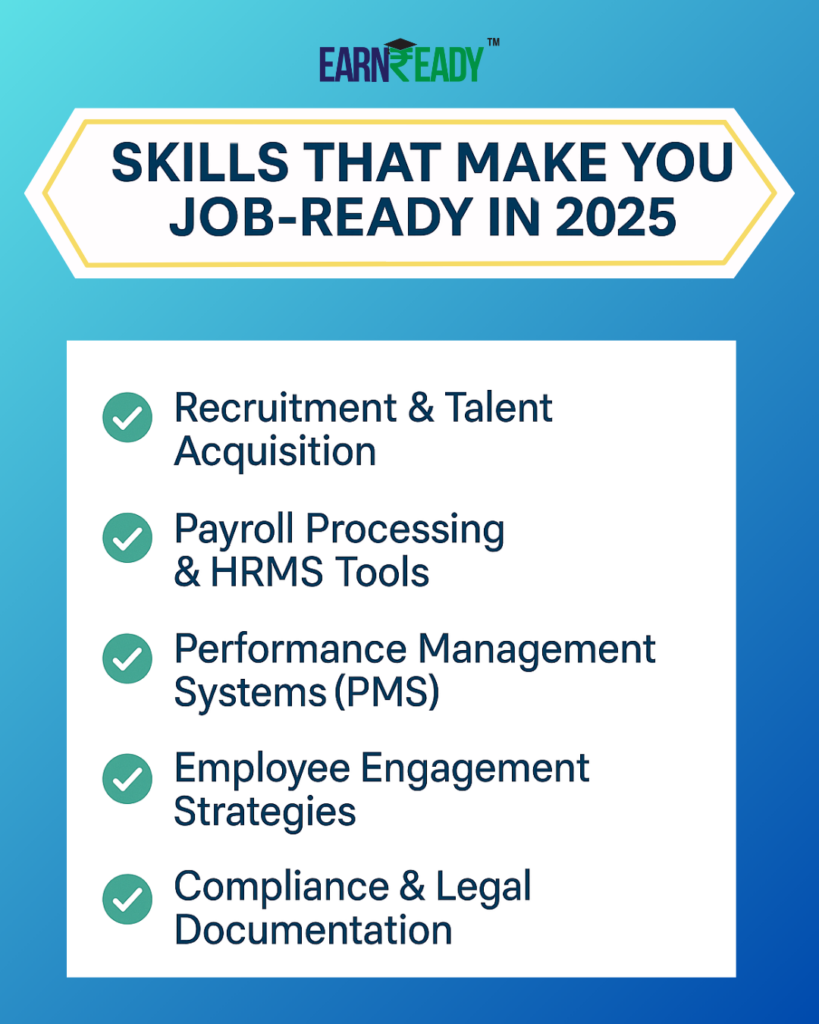
![TDS Job: Master TDS Job in Tally Easily [2025 Success Guide]](https://earnready.com/wp-content/uploads/2025/04/blog-image-28-1024x576.webp)
